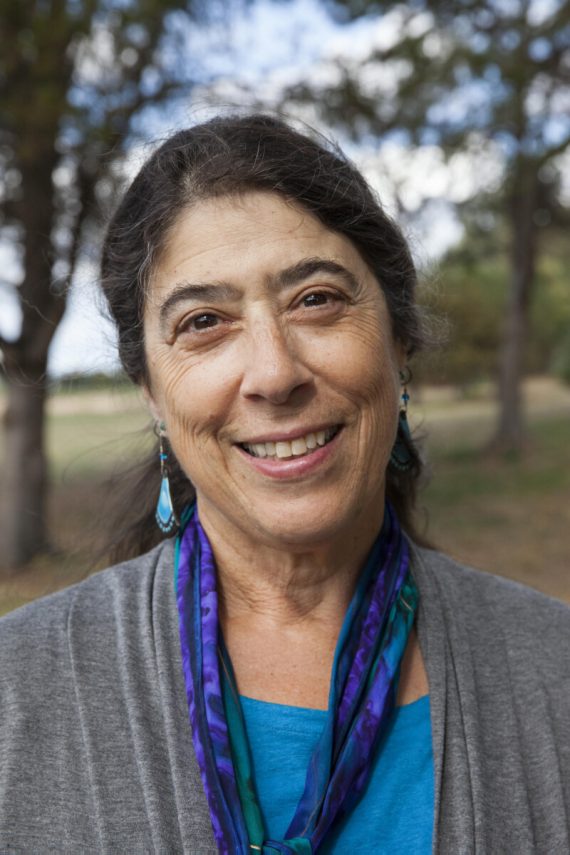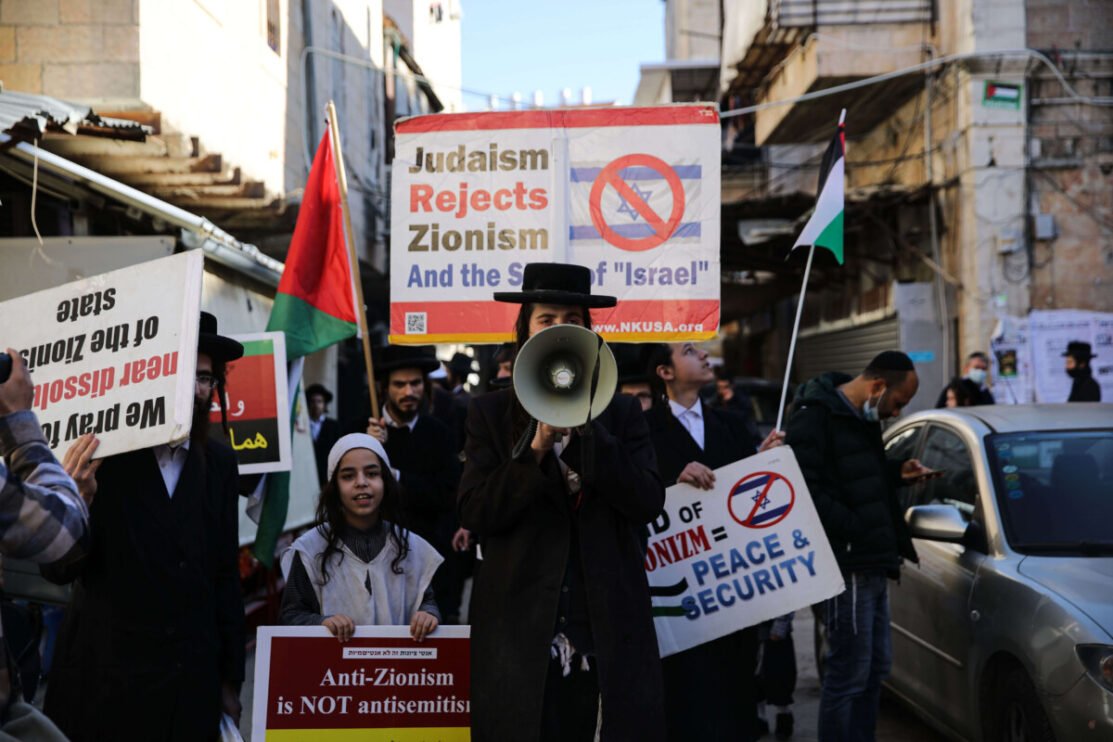As the echoes of the global reaction to the recent human rights violations in Sheikh Jarrah and Gaza continue worldwide, Politics Today interviewed the renowned Jewish American author, physician, and human rights activist, Alice Rothchild, on how to interpret the transition from the oppressed to the oppressor and the challenges of defining, discussing and reporting the settler-colonialism in Palestine as well as the ways forward for meaningful peace advocacy and solidarity.
Q. As a Jewish American author, a human rights activist, and a physician, you have numerous works in which you critically reflect on physical realities in Israel and Palestine. Can we hear the story of who you are and how your engagement in the Israeli-Palestinian predicament has started in your own words?
My grandparents were Orthodox Jews and immigrants to the U.S. I grew up in a very traditional Jewish family, which was fairly secular. I went to a Hebrew school, I had a bat mitzvah,[1] and went to Israel when I was 14. I still have my 14-year-old diary, so I know how I felt about my trip to this magical place.
I am also a child of the sixties, so I was in college during the Vietnam war when I began to learn about colonialism, racism, and Islamophobia. Thus, I became a much more politically aware person and began to look at the world in a more political way and a less tribal, Jewish way.
This is also when I began to frame things happening in Israel and Palestine in terms of colonialism and imperialism. Over the years there were various grassroots organizations that my friends and I made and joined. I am now involved in Jewish Voice for Peace as my main organization, which I am really happy to be part of.
I saw my role as uplifting the voices that are there and not usually heard, so I listened to the Palestinian narrative and tried to explore their experience of loss and occupation. Then, I used my privilege as a white Jewish woman to make all the stories that people tell me more visible. Yes, I understand anti-Semitism and Jewish oppression in Europe and the Holocaust, and I get it. But I also think that the principles that Israel was founded on are ultimately indefensible.
Q. So, as a Jewish American, who is not only well-aware of the trauma of the Holocaust, but also as an author and a physician, who has the first-hand experience on the physical realities in Palestine, how do you evaluate the transition from the persecuted to the persecutor, or from the oppressed to the oppressor in this story?
Well, it is not an unusual transformation if we look around the world, but it is an example of that transformation. The particular concern is that people who have lived through something horrific or have experienced tremendous loss, are victims. But once people adopt victimhood as one of their main stories, this sense of victimhood permits you to do whatever is necessary to survive. And this is what has happened in the Jewish community.
The idea is that, as a victim, I can do anything to survive, even if that means victimizing other people, is morally and politically problematic.
The idea is that, as a victim, I can do anything to survive, even if that means victimizing other people, is morally and politically problematic. We cannot use victimhood to justify such behaviors. Looking at the Holocaust and saying never again for me but not saying never again for anybody, is unjustifiable. Also, that attitude does not make us safer.
So, until the Jewish community overcomes this particular way of dealing with the traumas of the Holocaust, we are never going to get out of this cultural psychopathology. We need to acknowledge that we are no longer victims.
Q. At this point, I need to ask that in the discourses of the politicians in Israel today, there is what one may even call “genocidal” terminology, which also seems to resonate with quite some portion of the Israeli population. What are your thoughts on this? Where does the problem start?
The issue of what Ilan Pappé called the slow genocide of Gaza, is nothing new. As we look historically, we see the core problem is when Jews came to Palestine, they did not say we need a safe place, let’s share this, but they said, this land is mine; God gave me this land and I am going to take it by buying it, seizing it, or however I can.
As things progressed, the politics of the region led to the development of the State of Israel, and the view that the Jews have a right to this land, so they can remove or dispossess other people. Unfortunately, this became the underlying principle of the Israeli state.
Q. So you mean settler-colonialism is the underlying principle of the Israeli state that guides up to this day.
Yes, if you look at the settler project in the West Bank, it is just a continuation of the Nakba in 1948. And that is what settler colonialism is. It is what we did in the United States, Australia, New Zealand, South Africa, and it is heartbreaking for Jews to figure this out because Israel was supposed to be different. It was supposed to be the “light onto the nations”.
The state embodies the colonial principles it was founded on, and sadly, it is a very tiny percentage of the Jewish population that challenges this idea. Even most people on the left in Israel are not anti-Zionist, they still believe that there should be a state where Jews are in a privileged position over Palestinians. You cannot be a democracy and privilege one group over another.
Q. You also draw attention to the lack of questioning of Israeli policies by the mainstream Jewish community in the U.S. In light of the global reaction to what has happened in Sheikh Jarrah and Gaza recently, can you talk about a shift towards the policies of Israel in Palestine?
I think we have to be realistic in terms of positions of power. Both on the federal and the local level, there is a lot of what I would call reactionary thinking. The powerful mainstream parts of the Jewish community (and the evangelical Christian community) are still stuck where they are. Many bills and laws on the local and federal level say that criticizing Israel is anti-Semitic and until now if you say something progressive or sympathetic to Palestinians, you get a huge amount of pushback.
But there are also a lot of powerful progressive groups challenging that, such as Jewish Voice for Peace. Also, in the U.S. Congress, there are now progressive Palestinian or Muslim congresspeople. The fact that there are some voices in Congress is in fact revolutionary because 20 years ago we could have only dreamed of such a thing. The Black Lives Matter movement has endorsed solidarity with Palestinians. There is a much more open conversation on social media. At the local level we see changes as well. For instance the teachers’ union in California recently voted to support a boycott of Israel, which is also revolutionary.
Smaller victories like that are really important because no one gives up power voluntarily, and neither would the Israeli political machine. From their point of view, they have been very successful as a thriving little country with a massive military budget, and support from the United States. Why give that up? So, we have to see that U.S. foreign policy is part of what helps Israel do what it does and acknowledge that we are responsible as well. There are ways to pressure Congress and we need to seize it.
Recommended
Q. Thanks to the new communication tools and primarily social media, suppression of marginalized communities became more and more visible, but, on the other hand, there are too many double standards, as applied for example to some Palestinians on both social and mainstream media during the recent Israeli aggression over Gaza. What’s your view on this?
I think the double standard is partly related to the fact that there is a multi-million-dollar industry devoted to following social media and attacking people with progressive views. The messaging is very clear and the punishment for deviating from the messaging is very powerful; careers have been destroyed, professors have lost their academic appointments, teachers have lost their jobs. There is a cost, and the opposition tries to make the cost as heavy as possible.
Yes, the messaging control is fierce, and it is well-funded, but the good news is that people who previously were invisible can now get their message out, and so this war in the media is challenged. But, as I said earlier, even though we see the beginnings of the wall cracking, the reins of power are not giving up. So, we need to listen to what Palestinian people are saying, we need to honor it, uplift it, and be in solidarity. I think that that is a really powerful role for us, which I try to take via the Health Advisory Council of Jewish Voice for Peace.
Q. Now that the whole world is watching what is happening in the region, do you believe that the narrative at hand has lost its legitimacy?
I think it has been certainly challenged and that you are right; it has lost some of its legitimacy, but again, I do not think we should underestimate the power of the people who are defending its legitimacy. They are internationally very well-funded. But I do think that the ship has been damaged. Yet, we still have to keep working harder because nothing is over yet.

VIDEO: Wrestling with Zionism
We have to support boycott movements. We have to show up at political rallies. We have to call out news reports and radio and social media. We have to keep documenting the realities and asking serious questions, so people can know the consequences of assaulting Gaza for 11 days and shutting down the whole vaccine program and damaging the only clinic that does testing. We have to question how the deprival of the Gazans of Covid 19 vaccines make Israel safer.
Q. There are considerable efforts within the Jewish community, who interpret the same history of the Holocaust to understand the predicament of Palestinians today and advocate for peace and equality. How do you think that these voices, as a strong political alternative, would be heard more adequately to make the impact much needed?
I think we have eventually come to realize that we need to work in solidarity with oppressed people, and we need to not be the oppressor. We also need to be aware of our own racism. It is racism. We should name it and then we should deal with it. Once you start thinking that way, then there are new options. I think organizations like Jewish Voice for Peace are incredibly important in this manner, but we still have a lot of work to do. We also have to work intersectionally with our Muslim and Christian brothers and sisters and friends to create political change in a positive way.
I also think that the times are changing. There is a growing awareness of settler colonialism, and people are starting to apply this to Israel. I also think that Jewish people’s opinions regarding Israel and settler colonialism are generational. As we move into younger people, we get more and more people questioning the whole project and saying, wait a minute, if racism is bad in the U.S., then how can we support racism in Israel? There is a major generational split happening. So, I think there is hope, but we still have a lot of work to do.
[1] The Jewish coming of age ritual.






